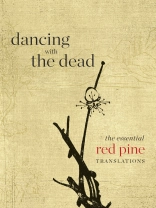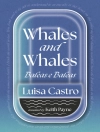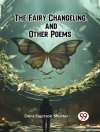An essential collection from the leading figure of Chinese poetry translation, presenting work of insight, humor, and musicality that continues to resonates across thousands of years.
Red Pine is one of the world’s finest translators of Chinese poetic and religious texts. His new anthology, Dancing with the Dead: The Essential Red Pine, gathers over thirty voices from the ancient Chinese past—including Buddhist poets Cold Mountain (Hanshan) and Stonehouse (Shiwu), as well as Tang-dynasty luminaries Wei Yingwu and Liu Zongyuan.
Dancing with the Dead also includes translations from such religious texts as Puming’s Oxherding Pictures and Verses and Lao-Tzu’s Daodejing, as well as poems and woodblock illustrations from Su Po-Jen’s Guide to Capturing a Plum Blossom, one of the world’s first printed books of art.
Throughout the book, poems are accompanied by footnotes providing historical context, and each section includes a new and illuminating introduction chronicling Red Pine’s relationship to the poet—discovery, travel, scholarship. Dancing With The Dead is more than a book, it is a journey: part travel essay, part road map, part guided meditation. It is a history translated in poem.
For Red Pine, “translating the words in a Chinese poem isn’t that hard, but finding the spirit that inspired those words, the music of the heart, and asking it to inspire [his heart], that is how, and why, [he] translates.”
“our luggage is full of river travel poems
may we ride forth together again.”
– Wei Yingwu
Mục lục
Introduction by Ha Jin
Puming
Cold Mountain & Friends
Stonehouse
Laozi
Song Boren
Poems of the Masters
Wei Yingwu
Finding Them Gone
Liu Zongyuan
Qu Yuan
Tao Yuanming
Dancing with the Dead
Giới thiệu về tác giả
Bill Porter assumes the pen name Red Pine for his translation work. He was born in Los Angeles in 1943, grew up in the Idaho Panhandle, served a tour of duty in the US Army, graduated from the University of California with a degree in anthropology, and attended graduate school at Columbia University. Uninspired by the prospect of an academic career, he dropped out of Columbia and moved to a Buddhist monastery in Taiwan. After four years with the monks and nuns, he struck out on his own and eventually found work at English-language radio stations in Taiwan and Hong Kong, where he interviewed local dignitaries and produced more than a thousand programs about his travels in China. He lives in Port Townsend, Washington.












